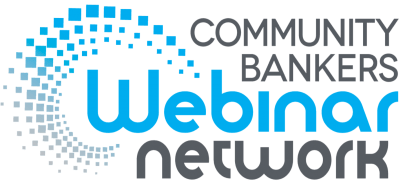2023 Debt Resolution Series
On-Demand Webinar
StreamedFeb 22, 2023
- Unlimited & shareable access starting two business days after live stream
- Available on desktop, mobile & tablet devices 24/7
- Take-away toolkit
- Ability to download webinar video
- Presenter's contact info for questions
DEBT RESOLUTION SERIES
90-minute webinars – available live or
on-demand
- TDR Comeback: Qualification Under CECL & End of CARES Act
- Lessons Learned from the FDCPA Collection Rule Changes
- Intermediate Collector: Refining Collections Skills
- Working with Troubled Loans: Extensions, Deferments, Re-Aging, Refinancing & Incentives
- 20 Common Mistakes in Consumer Collection
- Proper Repossession, Notice & Sale of Non-Real Estate Collateral
Purchase webinars individually or save with the series, 6 webinars for the price of 5!
SERIES DETAILS
Debt
Resolution. Loss Mitigation. Collections. Regardless of what your institution
calls it, there are many rules, regulations, and best practices to follow in
the process of collecting delinquent loans. From FDCPA collection rules, to
collateral repossession and sale, to accounting for troubled debt restructures
under CECL, our debt resolution series will equip your collection staff with
all the right tools to mitigate losses and liability throughout the collection
process.
NOTE: All materials are subject to copyright. Transmission, retransmission, or republishing of any webinar to other institutions or those not employed by your agency is prohibited. Print materials may be copied for eligible participants only.
NOTE: All materials are subject to copyright. Transmission, retransmission, or republishing of any webinar to other institutions or those not employed by your agency is prohibited. Print materials may be copied for eligible participants only.
Included Webinars:

On-DemandWebinar
20 Common Mistakes in Consumer Collection
Presenter:Elizabeth Fast
Consumer debt collection practices are the major reason for complaints, lawsuits, and enforcement actions against financial institutions. There are numerous debt collection laws and regulations – and numerous opportunities for errors. Borrowers, their attorneys, and regulators are monitoring closely, therefore it is important to understand and implement proper practices to avoid liability. Learn 20 of the most common consumer collection mistakes and how to avoid them.

On-DemandWebinar
Intermediate Collector: Refining Collections Skills
Presenter:David A. Reed
The world of delinquent borrowers is never boring and never stands still. Much has happened over the last few years that directly impacts your collections department. Unfortunately, many institutions just keep collecting loans the same way they always have and hope for the same results. That’s not a good methodology. Your team needs to continually sharpen their skills. From assessing your collections process to improving your skip tracing skills, this informative and interactive session is sure to have something for you! It is never too late to hone your collections skills and better position your institution to assist troubled borrowers who want to work with you and to maximize recovery from everyone else.

On-DemandWebinar
Proper Repossession, Notice & Sale of Non-Real Estate Collateral
Presenter:Elizabeth Fast
Although no lender likes to do repossessions, it may be the only way to collect on a loan. However, the repossession process is fraught with peril for your institution. This webinar will explain all aspects of the repossession process regarding non-real estate collateral, starting with the decision to repossess and ending with the disposition of the collateral at a private or public sale. Learn the steps to properly repossess and dispose of collateral under UCC Article 9. This webinar will be applicable to consumer and commercial situations.

On-DemandWebinar
TDR Comeback: Qualification Under CECL & End of CARES Act
Presenter:Stephen J.M. Schiltz
There was a reprieve from troubled debt restructurings (TDRs) during the COVID-19 pandemic due to the Coronavirus Aid, Relief, and Economic Security (CARES) Act and interagency guidance that allowed financial institutions to exclude certain loan modifications from TDR reporting. However, Section 4013 of the CARES Act ended on January 1, 2022, and the revised interagency guidance only allows for temporary modifications (not more than six months) for borrowers affected by COVID-19. TDRs will be making a comeback with the end of regulatory relief and another recession looming on the horizon. In addition, TDR accounting and disclosures will be changing with the adoption of the Current Expected Credit Losses (CECL) methodology. This session will guide you through the process of identifying TDRs, calculating expected reserves, compiling financial disclosures, and implementing best-practice recommendations along the way. Bring your questions!
© 2024 FINANCIAL EDUCATION & DEVELOPMENT, INC



